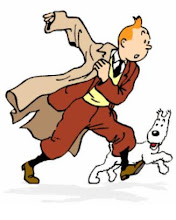
Let’s face it, journalism is and has always been about networking in some form. Back in the day, around the turn of the century, when Fleet Street still existed as the hub of British news output, the pavement used to be pounded constantly covering an area to find and follow a story. Letters constantly sailed between continents, an exchange between correspondent and editor that would take weeks, even months until a story from the far reaches of Empire movements in Africa or the economic growth and industrialisation sweeping across America hit the pages back in the UK.
It’s simple, in order to get a story to write or broadcast about you need contacts. If you haven’t spoken to someone about the story in question then how have you received the information? It used to be that journalists had to rely on hear say from the street, the power of initiative and personal verbal interaction. That was before the telephone, when this piece of technology was introduced, (often taken for granted today), it opened more doors of networking. Journalists could call contacts and know they could find them on the other end of the line, providing they were reliable. On the other side of the coin, the public would call their local newsroom to give information on something that could develop into a story. Networking continued.
We go forward more years and the first mobile phones begin to be developed and hit the streets with superb results for the profession. No longer did a journalist have to route around in his pocket for an extra 10 pence to ensure the line didn’t go dead before finishing dictating all the information on a story to the editor back in the newsroom. This was of course provided the trusty phone box (one of the best sources of networking/information transference for a journalist in the 70’s and 80’s) wasn’t out of order from vandalism. The mobile phone unlocked more doors, allowed stories to get back to the newsroom, printed and pressed and back out for public issue faster than ever before. Not to add being a godsend for any journalist. This technology has aided broadcasting too, viewers can now call into a news channel to relay what was happening at a scene before camera crews and reporters got there. The next logical step was to put cameras onto them.
Then came the World Wide Web, millions of websites and web addresses, blogs, social networking groups, emails. No longer does an editor have to wait 8 weeks for his correspondent to respond on a story from America, today you barely wait 8 minutes. News reply and receive has become instantaneous.
Technology development has allowed more User Generated Content (UGC). It's allowed one person to network with hundreds even thousands throughout all continents. Interviews no longer need to be conducted face to face or even over the phone, information can be emailed, twittered, even webcasted.
Information technology and its accessibility allowing people to become their own journalists, camera men, editors, producers so on and ect. We all remember the first and last images of the fireball image that was Concorde seconds before it crashed in France in 2000. Filmed from a Spanish lorry drivers cab, it was one of the most striking UGC images of a new century. And provided something to news agencies/networks that they couldn't. It was networked journalism. Another door was opened. http://www.youtube.com/watch?v=1R4BQBgIqjE
All doors are unlocked now. For the first time we have a chance to be all a part of the same network, linked together. Will people take up the opportunity?
Facebook is one of the most famous networking experiments ever to be produced onto the web, but people still choose to be closed off with it rather than opening a communiqué with someone from another country you don’t know. Pen pals via the web? Not so crazy.
Conclusively we have established, networking is always needed, not just in journalism, but life. Everyone wants to share information.
Technology development and the web has unlocked and opened more doors to people, raising the level of their voice. The question is do we listen?
Why shouldn’t we, they might have something interesting to say. We don’t need to meet and greet anymore, even though it’s nice too. It’s online, in blogs and networking news and social groups, dare we go back to ancient ways, we pick up the phone. It’s simple the best networkers are the ones that open their ears and eyes.
Ask yourself, if you close these two things, do you have any business being in this one?


1 comment:
Some interesting points in here James, and you are right - we've always networked.
The potential of the scale is now different. The danger is, as with the telephone, that social media could be seen as a quick way to get a soundbite when it is much more than that.
Post a Comment